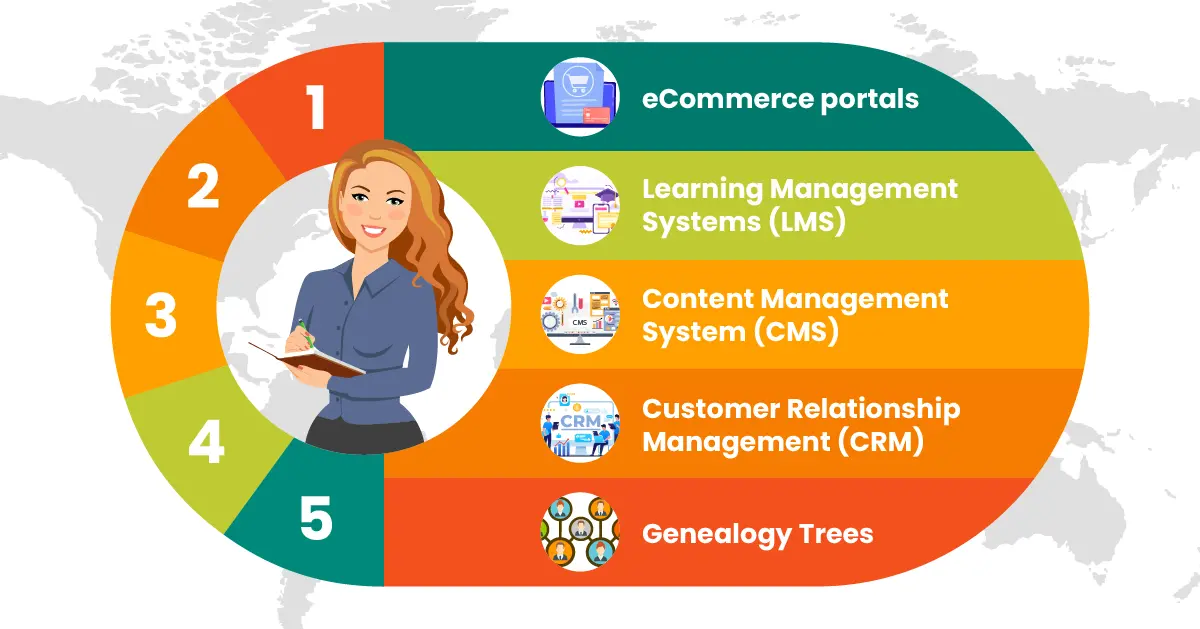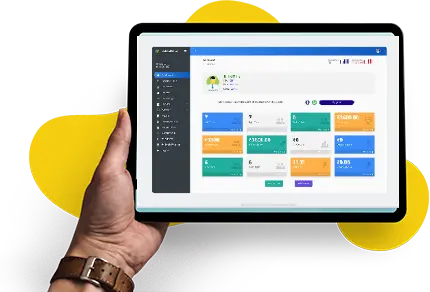Introduction
No secret that marketing is the primary way businesses make money. Unless your brand is a household name, or you're otherwise widely known, the main way you'll be drawing in customers is through marketing.
Here’s the good news and bad news:
1. Good news
There are hundreds of ways to promote your business, especially in 2022.
2. Bad news
Almost all of them require significant capital to start with, and if you're a start-up who's looking to make a name for yourself, you might not have that.
It doesn't matter what industry you're in - the only way to stay afloat is to have a sustainable way to bring in customers – without spending thousands on ads or hiring an entire marketing team. Enter multi-level marketing.
This article will go in-depth in explaining multi-level marketing for businesses – how it works, how participants are paid, and how it holds up against other marketing alternatives.
What is MLM?
Multi-level marketing, also known as network marketing or referral marketing, uses a tiered commission system to sell products and services.
In simple terms, it’s when a company uses people instead of retail outlets to sell their products directly to their customers or hire new distributors and earn commissions based on what they buy and their sales to retail customers.
Here’s a brief explainer: Alex is an independent distributor for Company A. Alex hires Jane to be his distributor. Jane hires Ali to be her distributor. We now have three tiers. Ali and Jane are a part of Alex’s sales network, or “downline”.
When Jane makes a purchase, only Alex is compensated. When Ali makes a purchase, both Jane and Alex are paid. From here, we can see that the main way a distributor makes money is by hiring more distributors under him.
How do MLMs compare to other alternatives
Another alternative to MLM is Affiliate Marketing. There are some similarities between the two – in both cases, people get paid to promote a product and receive a commission on additional product sales. However, affiliate marketing doesn’t require people to buy products or recruit people.
Affiliate marketers are given a unique link to the company’s products. From there, they need to promote the link to people. The link will redirect people to the product's landing page, where they can make a purchase. Each time a sale is made through their custom link, the marketer will receive a commission.
So, is affiliate marketing worth it for businesses? The answer is…. It depends. There is more legwork involved with affiliate marketing – you'll need to find someone who has access to a large following, and you're not guaranteed sales right away.
Without knowing much about your business’ needs, we’d say MLM is the better bet – it’s cost-efficient, easy to set up and much easier to monitor over time.
How are MLMs different from pyramid schemes?
This is a common fear most people have, and it's easy to see where it comes from. From the outside, there isn't much to differentiate between the two – both appear to function in a pyramid formation and are often touted as get-rich-quick schemes. However, it goes without saying that pyramid schemes are illegal scams, while multi-level marketing is legitimate.
Fortunately for you, we’ve distilled the two main differences between them here:
Difference 1: According to the Federal Trade Commission (FTC), MLM’s pay based on sales to retail customers, without having to recruit new distributors. On the other hand, pyramid schemes rely on continuous recruitment of due paying members to stay afloat – so they’re not concerned with their members buying products they can’t sell.
Difference 2: MLM companies are compliant. One way to verify this is to check if they meet the 70% rule, which states that at least 70% of all goods sold must be purchased by non-distributors.
Naturally, this means people within the distributor network can’t be buying the company's goods – instead, authentic consumers outside the company need to be the ones buying the company's products.
Difference 3: MLM companies sell genuine products and services to their customers, while pyramid schemes do not. Instead, participants in a pyramid scheme are deceived into thinking that the company owns a valuable asset.
Give your customers a perfect welcome
Here's reasons why you need to use Multilevel marketing Software?

1. eCommerce portals
These will form the backbone of all your processes. These portals will enable you to list your products, so members can purchase them easily. You'll be able to access technical features like Search Engine Optimisation (SEO) to help your site get recognised by people on Google Search.
2. Learning Management Systems (LMS)
Rome wasn’t built in a day – the same goes for successful businesses. Like we mentioned earlier, the key to succeeding in MLM is having a wide net of distributors who actively go about recruiting others. For that, you’ll need to train your distributors on the proper processes. LMS will provide your distributors with a dedicated space to learn about the various commission plans and communicate with other distributors to better serve your company.
3. Content Management System (CMS)
Not everyone at your company knows tech jargon. If everyone at your company needs to revert to one IT personnel each time they wanted to make an edit to the company website…it’ll seriously decrease your company’s efficiency. Enter the Content Management System (CMS). It's a one-stop-shop for all things pertaining to your company’s web content – except it can be understood by everyone in your company, regardless of what division they work in.
4. Customer Relationship Management (CRM)
Engaging with your customers is one of the most critical parts of running a business – so it makes sense that your company’s profitability hinges on it as well.
With a dedicated CRM, you’ll be able to track all your company’s outbound marketing efforts from a singular dashboard. Picture in-depth analytics from weekly newsletters, lead management and funnelling all summarised on one page, just waiting for you to analyse and improve on it. You’ll never go back to juggling between 4 applications again.
5. Genealogy Trees
With MLM, the pyramid structure can get out of hand. We know what you're thinking – the bigger pyramid, the better it is for business, right? That's true, but only if your company can track sales and commissions accurately.
With a genealogy tree, you’ll be able to see complex relationships simplified in a picture – a diagram that clearly explains the connections between each distributor and how well they've been performing.
Feeling overwhelmed already? Here’s a piece of good news.
- We,Global MLM solutions, provide all of these services and more.
- We pride ourselves on our easy-to-use software, which enables you to control every aspect of your direct selling business.
- The days of you using clunky, unresponsive programs are over.
- It’s time to use a solution that actually works – and looks good while it’s at it.







Comments
Leave a Reply
Your email address will not be published. Required fields are marked *